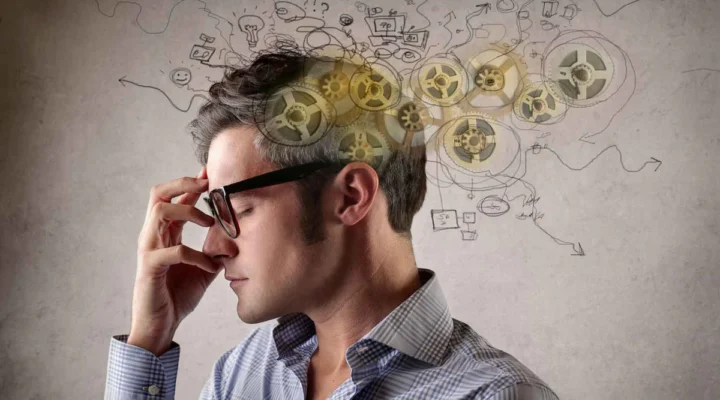Mental health treatment has evolved, but the support from society and the medical system still has room for growth. Many are still afraid of discussing it publicly, even with the stigma starting to fade. This fear has only motivated people to be dismissive and ignorant of the issues many face. Fear may prevent people from sharing their struggles as well, only harming their mental health in the long run.
Society needs to become a safe place to discuss experiences related to mental illness. To make positive change, it will take the individual efforts of many. Many biases are instigated by culture and family upbringing. These biases affect how people react and treat those with mental illness. Recognizing and unlearning your negative beliefs can help you improve your well-being and give more compassion to those struggling.
Room for Improvement

There has been an incredible amount of research done over the years to improve medical and psychiatric treatment of mental illness. New diagnoses have been introduced over the decades, and even children have been able to receive access to resources. Medication has become more accessible as well, with online mental health medication growing in popularity. However, the stigma that remains surrounding mental health continues to slow society’s progress.
Many people with mental illness struggle to get the appropriate level of care. One reason for this is the scarcity of mental health professionals and resources. This, in turn, often leads to long waiting times for appointments and insufficient support for those in need. This is most evident in communities impacted by the rise of homelessness and poverty in the United States. Many therapists also don’t accept insurance, as most insurance plans put restrictions on treatment. With cultural biases making their way into health policies too, the necessary resource is expensive and unattainable for many.
Although the public has slowly started to encourage mental health treatment, it is still not a popular conversation at every dinner table. And some individuals, influenced by cultural or generational beliefs, still harbor skepticism or disregard for mental health concerns, attributing them to personal weakness rather than recognizing them as legitimate medical conditions requiring attention and care.
For society to make progress, people need to be open to discussing and learning about mental health. Encouraging conversation will make it easier for others to speak about their experiences and discuss treatment. Advocating for those in need will also help the push to improve treatment options. Advocacy starts with challenging misconceptions.
Understanding the Myths

Over time, there have been myths associated with mental illness. If you grew up in a community that was not accepting of mental illness, you may have some biases yourself. You may feel nervous or in denial about your experiences or judge those around you. Society’s mistreatment of those struggling has only encouraged the general public to look down on them.
A popular myth regarding mental illness is that it’s the root of violence. While mental illness can influence emotions, the idea that it would automatically make someone violent isn’t factual. This is an area where the media has hurt the public’s understanding. Films like “Split” and “Joker” only continue to associate mental illness with violence. These films give the impression that a mental illness can push anyone to the point of murder or aggression. In reality, a person’s likelihood to get violent goes deeper than a diagnosis.
Another common misconception is that mental illness is easy to manage. For some, mental illness can be debilitating. It’s not just a matter of being sad or nervous. When you are experiencing anxiety or depression, you’re feeling an intolerable amount of these emotions. So much so that many tend to feel a lack of control in their own life and may feel stuck. Those struggling can’t just “snap out of it,” so people deserve grace when speaking about their experiences.
These misconceptions have often led to mistreatment. From the brutalities of shock therapy to the irreversible damage caused by lobotomies, the history of mental health treatment is marred by misguided interventions. In the past, there was a lack of research and information. This left room for fear and judgment of the unknown to influence wrongful actions. It may be difficult to empathize if you don’t have first-hand experience with mental illness. But you can learn to keep an open mind and create a safe space for others to share their experiences.
Reflect on Your Mental Health

You may feel confident in your mental health, but no one is perfect, and there is always room for growth. Even individuals who don’t grapple with diagnosed mental health disorders can experience periods of heightened anxiety, moments of low mood, or situational depression. These are often common when coping with significant life changes, loss, or grief. The misconception that mental health solely pertains to diagnosed conditions can overlook the fact that everyone faces challenges that can impact their mental well-being.
Unlearning your biases will help you feel more comfortable in discussing your mental health and acknowledging the areas you can improve. Even if you can’t relate to those struggling with anxiety, depression, or other disorders, you can still self-reflect. For example, stress is a common issue that affects people mentally. Recognizing stress and taking steps toward better management will improve your mental stability.
It’s still possible to experience symptoms of anxiety or depression without a diagnosis, and it’s nothing to be embarrassed about. Going through a loss or breakup can cause grief and depression for an extended period. You may experience anxiety from time to time as well, like right before a presentation or interview. Experiencing these emotions occasionally is normal, but keep a pulse on how they affect you. There is no shame in getting help if your emotions become overwhelming.
You do not need to suffer chronic mental illness to work on your mental health either. Focusing on your mental wellness can help you improve in many areas of your life. Noticing your issues and patterns can even help you better relate to others struggling. Sharing your experience on the topic will only help encourage positive conversation and may even help you feel better when times are tough.
All Progress is Good Progress
After learning about your biases, it’s okay to still have discomfort when discussing mental health. It’s a vulnerable topic, and you don’t have to share all your troubles with others. If you contribute to safe spaces by having an open mind, you may create a safe space for yourself, too. Spreading positivity and speaking out against the myths will better communities and interactions with those struggling with mental illness.




